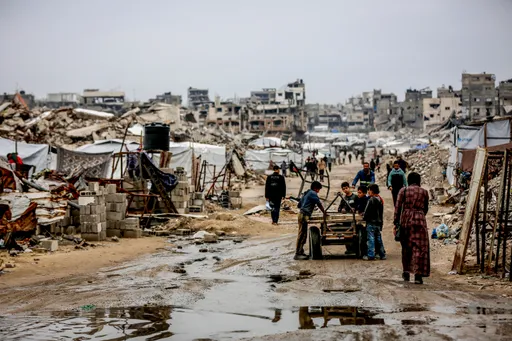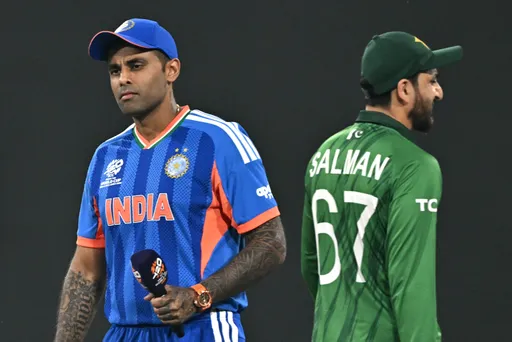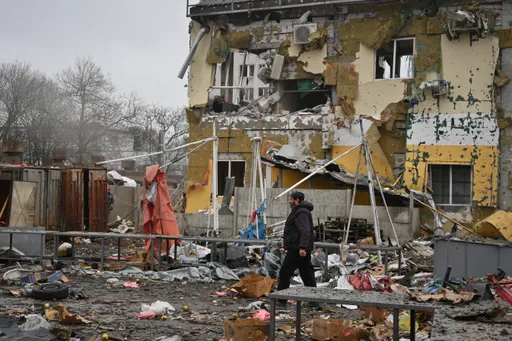When Raheem Khan turned 17 his life was turned upside down. This didn’t happen because of the death of a loved one, a war breaking out or the onset of a terminal illness. Rather, when he came home from playing football with his friends one evening he was told he either had to marry a girl he’d never met or be ostracized from the family.
“My mental health wasn’t exactly great before then, but it all went downhill from there.”
The onset of the covid pandemic worsened his depression and anxiety.
Khan is not alone.
Research by the UK government recently revealed nearly two-thirds (59 percent) of people of South Asian origin in England experienced mental health problems as a result of the covid pandemic.
However, effectively dealing with mental health in Britain’s South Asian communities is not easy. Long-standing problems remain that prevent many from getting the help they need.
Raheem believes the biggest problem is stigma. “There are a lot of miserable people in our communities. We tend to dismiss mental illness as people being weak and treat them as outcasts. No one wants to be marginalized within a community that is already marginalized by the mainstream because of racism and Islamophobia and all that, so most people just suffer in silence.”
Cultural Values
High-profile South Asian celebrities such as England cricketer Monty Panesar and writer Satnam Sanghera have spoken about their mental health struggles. Their openness about their experiences has encouraged others to speak out, and in recent years social media has made it easier to do so. Several common causes are regularly cited for the stigma, and the most prominent is a conflicting set of cultural values.
Others include vocabulary, (the word used for mental illness in Punjabi, Urdu and Hindi is pagal, meaning ¨crazy¨) certain religious beliefs (for example, that people are being punished for the sins of a previous life) and a shame-based culture where any setback is commonly believed to undermine one’s social status and respectability - reducing marriage prospects, for example.
Whilst generally holding to one's values can improve one's wellbeing, Raheem feels some of these values are themselves problematic and create not only stigma but also the pathologies in the first place.
Familial Pressure
“The biggest thing about South Asian culture is family control,” Raheem continues. “Parents assume the right to control major decisions in your life like who you’ll marry and what job you’ll have. The elders born ‘back home’, they have this belief their ways are morally superior and their kids and grandkids are inherently ignorant and ungrateful because they’ve grown up in a western society that encourages them to be independent.” He feels this creates a lot of pressure for young South Asians.
“It accumulates over the years and you carry a feeling of not fitting in with the authoritative culture of your family yet guilty for participating in the world you actually belong to - a world of following your own hopes and dreams. Believe me, that can push a person over the edge. It happened to many of the lads I grew up with.”
A 13-year government-funded campaign that ended in March 2021 also highlights this. Time To Change studied nationwide attitudes to mental health in different communities and found familial pressure was a common obstacle to wellbeing for British South Asians.
The pressure Raheem faced went beyond the forced marriage. Though he was able to divorce his wife after six months, as punishment his father forced him to drop out of school and work in the family business, dashing his dream of going to college to study sports coaching.
With his life’s passion denied, his mental health deteriorated. He stopped sleeping and eating and couldn’t focus on his job at the family’s takeaway. “I’d turn up to work but forget how to cook dishes I’d been making daily for the past six months. I’d take orders wrong and sometimes just hide in the toilet crying.”
Unable to see the link between their behaviour and the onset of Raheem’s depression, his family thought he was sabotaging the workplace as an act of rebellion. The lack of empathy became too much to bear, so he absconded.
“It lifted my spirits for a bit. But then I had bills I couldn’t pay.” To survive he got involved in drug dealing and petty crime. It was far from the life he wanted. “I felt I had 20 tons of weights on my chest.” He said it was a choice between being broke and starving versus ruining other people’s lives to get by. The irreconcilable moral dilemma led him to attempt suicide.
Whilst in hospital recovering he was referred to a counsellor, but she couldn’t understand the cultural problems he faced. Her therapy was of “no help.”
Racial disparities
Manawar Jan-Khan has campaigned for racial justice in mental health services for twenty years. “It is 2021 and we are still not getting culturally appropriate services.” Research done last year by the Race Equality Foundation found South Asians are less likely to access mental health services. “We’re not being understood. There is a different cultural frame. Most psychotherapy is based on Eurocentric theories.”
His experience has shown him that the state takes no interest in addressing profound racial disparities in healthcare.
He is currently campaigning for a review into the recent suicides of two young people of South Asian origin in the northern English city of Bradford. Government guidelines require a review when more than one suicide takes place in a short space of time in a specific community or area. Despite contacting the council, Public Health England and his MP, no review has been commissioned.
Research revealed there are negative stereotypes of ethnic minorities held by medical practitioners, and this impacts treatment decisions. It may contribute to why ethnic minorities are more likely to be forcibly detained in psychiatric wards. In his two decades of work, Jan-Khan has seen little change in this regard. “Racism plays a major role in people not getting the mental health services they need. Our institutions are not recognizing that.”
For Raheem, now 25 and working full-time but still not in contact with his family, all of this is bigger than mental health. “If you’re being suppressed by your own family and ethnic community while the state and wider society don’t have your back either, of course you’re going to get problems with your head. And that’s just the beginning of the problems.”























